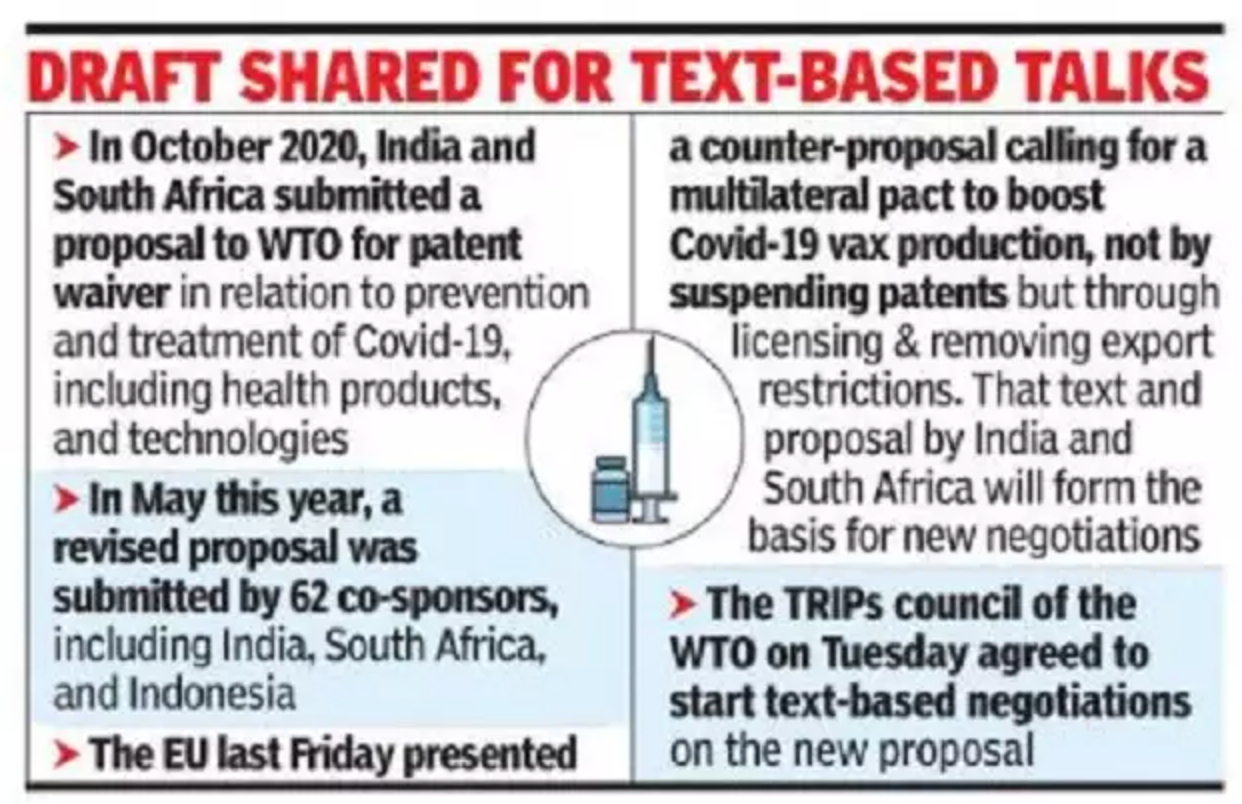New Delhi: Members of the World Trade Organisation (WTO) on Wednesday agreed to hold discussions on patent waiver for Covid vaccines, drugs and devices, amid indications that the talks will be fast-tracked. At a meeting of a key WTO panel looking into the issue, India suggested that deliberations should begin next week with an intent to clinch a deal by the end of July, sources said.
Though the EU, the UK and Switzerland reiterated their opposition, they agreed to join text-based talks, for which a draft has been shared. Japan, Brazil, Australia, Canada and others agreed to join the talks to work out a method for implementing the waiver on intellectual property rights and its timeframe.
The agreement is, however, limited to negotiations.
Norwegian ambassador to the WTO Dagfinn Sørli, who chairs the TRIPS Council that will work out the details, recognised the persisting differences, although member countries have agreed to negotiate.
He suggested that a report be submitted to trade ministers from WTO countries, who will meet next month, setting an informal deadline of sorts.
Indian officials said that they will engage with all countries to negotiate each proposal. Since WTO is driven by consensus, even one of the164 member countries can block a decision. The other concern is coverage of the waiver – whether it will include only vaccines or it will extend to medicines, therapies and devices, along with raw material and inputs as well as technology, to contain Coronavirus.
Not seeking waiver for indefinite period: India
While there were worries over a three-year suspension, the Indian delegation underlined it was temporary and the proponents, including South Africa and other developing and poor countries, have no intention to continue the waiver for an indefinite period or deny benefits to patent holders.
In fact, the US, which agreed to the talks recently, also suggested steps to speed up a move towards consensus and proposed that countries could focus on steps that may be needed to address the supply and distribution of vaccines.
India and South Africa had first moved the proposal in October, but there was little traction from developed countries. Once the US and some others came on board, a detailed plan was submitted late last month, which has now formed the basis of negotiations.
Even if an agreement is clinched it will take a couple of quarters, if not more, for plants to be able to commence production, provided companies such as Pfizer, Moderna and Johnson and Johnson cooperate.
The proponents, including Pakistan, Malaysia, Argentina and others, believe that waiver of patents and other intellectual property rights along with access to raw material and technology will help boost production of drugs and vaccines. The current pace of production is seen to be too slow and is unlikely to result in a significant part of the global population being inoculated quickly.







